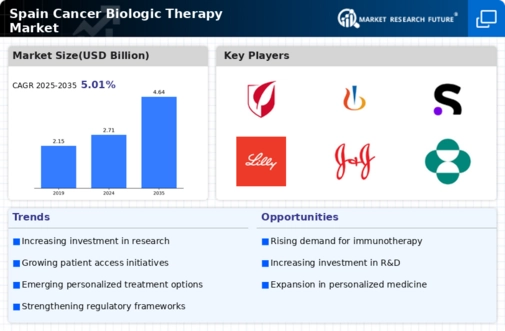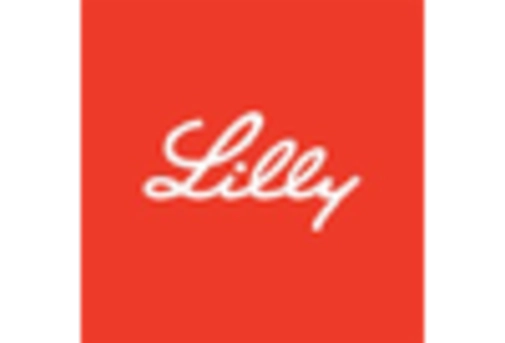In Spain, the cancer biologic therapy market is experiencing significant growth driven by a combination of factors. The rising incidence of cancer cases has led to an increased demand for effective treatment options, pushing healthcare providers to adopt biologic therapies as a preferred choice due to their targeted action and efficacy. Spanish health authorities have been actively promoting the use of innovative therapies and integrating them into national healthcare protocols, which serves as a key driver in enabling access to newer biologic therapies for patients.
Furthermore, advancements in biotechnology and ongoing research initiatives within Spanish universities and institutions have boosted the development of novel biological agents, providing opportunities for companies to introduce innovative treatment solutions.Recent trends indicate a shift toward personalized medicine, with biologic therapies increasingly focused on the individual characteristics of patients and their tumors. This trend aligns with Spain’s commitment to improving patient outcomes through tailored treatment approaches. Additionally, collaborations between public hospitals, research institutions, and pharmaceutical companies are becoming more frequent, supporting the rapid translation of research findings into clinical applications.
Furthermore, the Spanish government is enhancing its efforts in health technology assessment, ensuring that new treatments are evaluated for their effectiveness and cost-efficiency before they are made widely available.Looking forward, the cancer biologic therapy market in Spain presents numerous opportunities for growth. There is potential for expanded research into combination therapies, leveraging existing biologic agents alongside traditional treatments. The increasing aging population, coupled with the persistence of risk factors such as smoking and obesity, creates a need for innovative treatment strategies.
By addressing these emerging trends and focusing on enhancing patient access and outcomes, the Spain cancer biologic therapy sector is poised for sustained development.





















